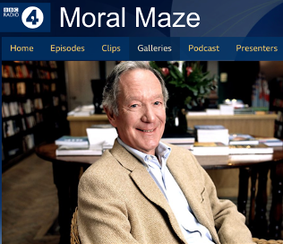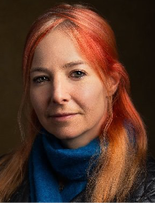Last week, I wrote a small piece for the North East Humanists' bulletin, which I thought I should share here. There's much more to say about the topic, but I hope you enjoy it.

The written introduction to the show is very thought provoking:
“The end of one year and the beginning of another can be an obvious moment for people to set goals and reset priorities. The pandemic, from which we are yet to emerge, has put much into perspective and has doubtless prompted many to ask the question: where am I going with my life? What’s it all about? While none of us can truly know the meaning of life, most of us are meaning-seeking creatures who have our own ideas about what gives life meaning – God, nature, the arts, human relationships, good food, scientific progress. Is meaning essential to a life well lived or do we put too much pressure on ourselves in trying to create it?”
The entire 43-minute episode is worth listening to, but I wanted to share and reflect on the final words from Alice Roberts. Near the close of the program, she said,

This is a typical response from Humanists, reflecting the humility we have about our place in this universe. We profess no certainties taken from any sacred texts that provide religious meanings for life. As such, Alice provided a good representation of Humanists UK. But without more context, this can come across as relativistic. Who’s to say that any of those religious meanings of life aren’t proper? Based on many campaigns from Humanists UK, I think it’s safe to say we Humanists think plenty of religious meanings for life don’t fit the bill. But how do we explain this?
One concept that I think is helpful comes from a paper written by the philosopher Dan Dennett. In a 2009 article titled, “Darwin's ‘strange inversion of reasoning’”, Dennett described the way our understanding of the world has been completely turned upside down compared to the way that creationists think about it. Dennett quoted a passage from a contemporary critic of Darwin who just couldn’t believe what was being proposed. That critic wrote:
“We may enunciate as the fundamental principle of the whole [Darwinian] system, that, in order to make a perfect and beautiful machine, it is not requisite to know how to make it. This proposition will be found, on careful examination, to express, in condensed form, the essential purport of the Theory [of Evolution], and to express in a few words all Mr. Darwin's meaning; who, by a strange inversion of reasoning, seems to think Absolute Ignorance fully qualified to take the place of Absolute Wisdom in all of the achievements of creative skill.”
As Dennett makes clear, this intended criticism actually turns out to be a wonderful description of what is going on in the world. There has been no “Absolute Wisdom” from on high designing the world in a beautiful, top-down fashion. Instead, Darwin’s “bubble-up theory of creation” explains very clearly how life has found its way forward through myriad trials and errors conducted in “Absolute Ignorance”. In exactly the same way, there is no singular, top-down “Meaning of Life” that comes booming down to us from on high. Instead, meanings are also built up through trials and errors. Over the millennia of human culture, we have discovered some that survive better than others. And we are still testing others out, which is why Alice was right to say, “There are as many meanings as there are different people.” Only some of these meanings, however, lead towards more survival and flourishing for life on this planet. And that is what we can use our reason to try and figure out.
For much more on this topic, I highly recommend the work of philosopher John Messerly. He wrote a book in 2013 called The Meaning of Life, and he published a synopsis of it on his website called “A Philosopher’s Lifelong Search for Meaning.”

